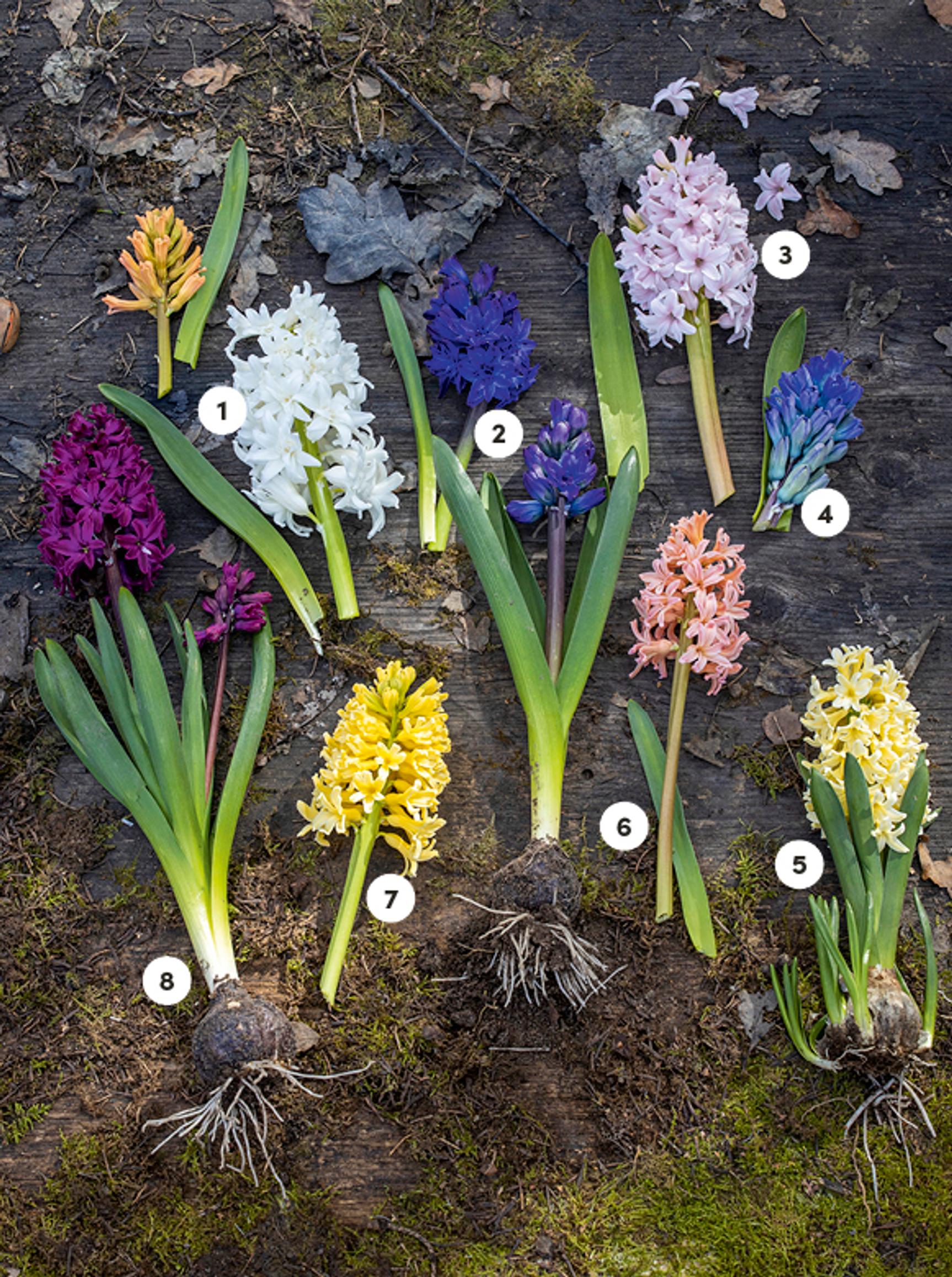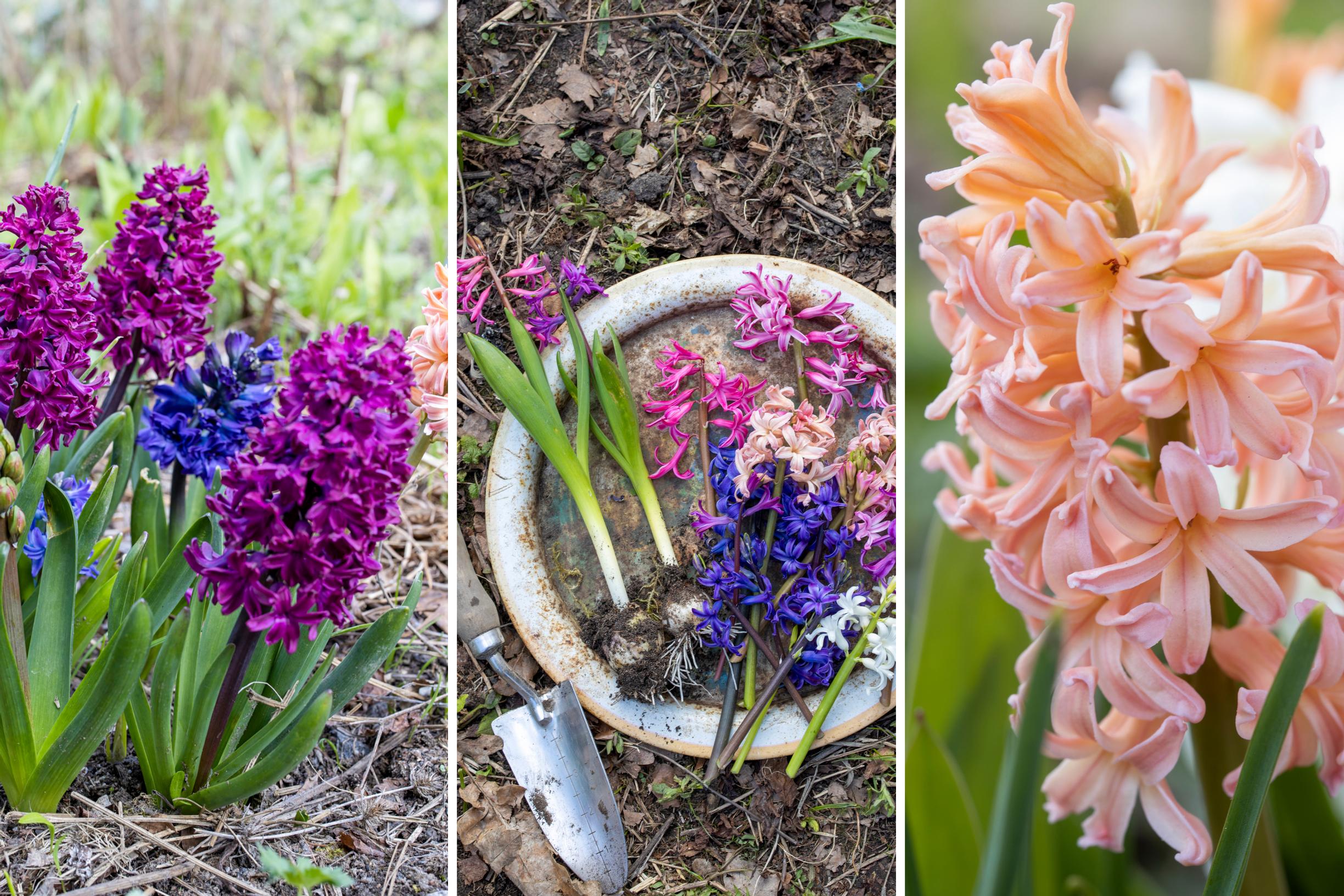
Hyacinths bring color and fragrance to a spring garden—some even year after year! Save your potted hyacinths for garden planting, too
Hyacinths are perfect bloomers for the spring garden. Blooming in delicious shades of violet, yellow, and red, hyacinths usually get to open their buds undisturbed, as voles, deer, and rabbits often leave them alone.
The hyacinth (Hyacinthus orientalis) grows naturally in Southwest Asia and the eastern Mediterranean regions, where summers are dry and warm. When grown in more northern climates, this bulbous plant requires a dry dormant period in summer and relatively warm soil to develop flower buds for the following spring.
Hyacinths are fairly susceptible to winter damage, so they may be difficult to grow in the northern-most climates. Planting is best done in September to give the bulbs plenty of time to establish roots before frost. Well-draining soil and planting deep enough, about 20 centimeters down, are also important for winter survival. A layer of leaves spread over the growing area provides protection from cold, especially during winters with little or no snow.

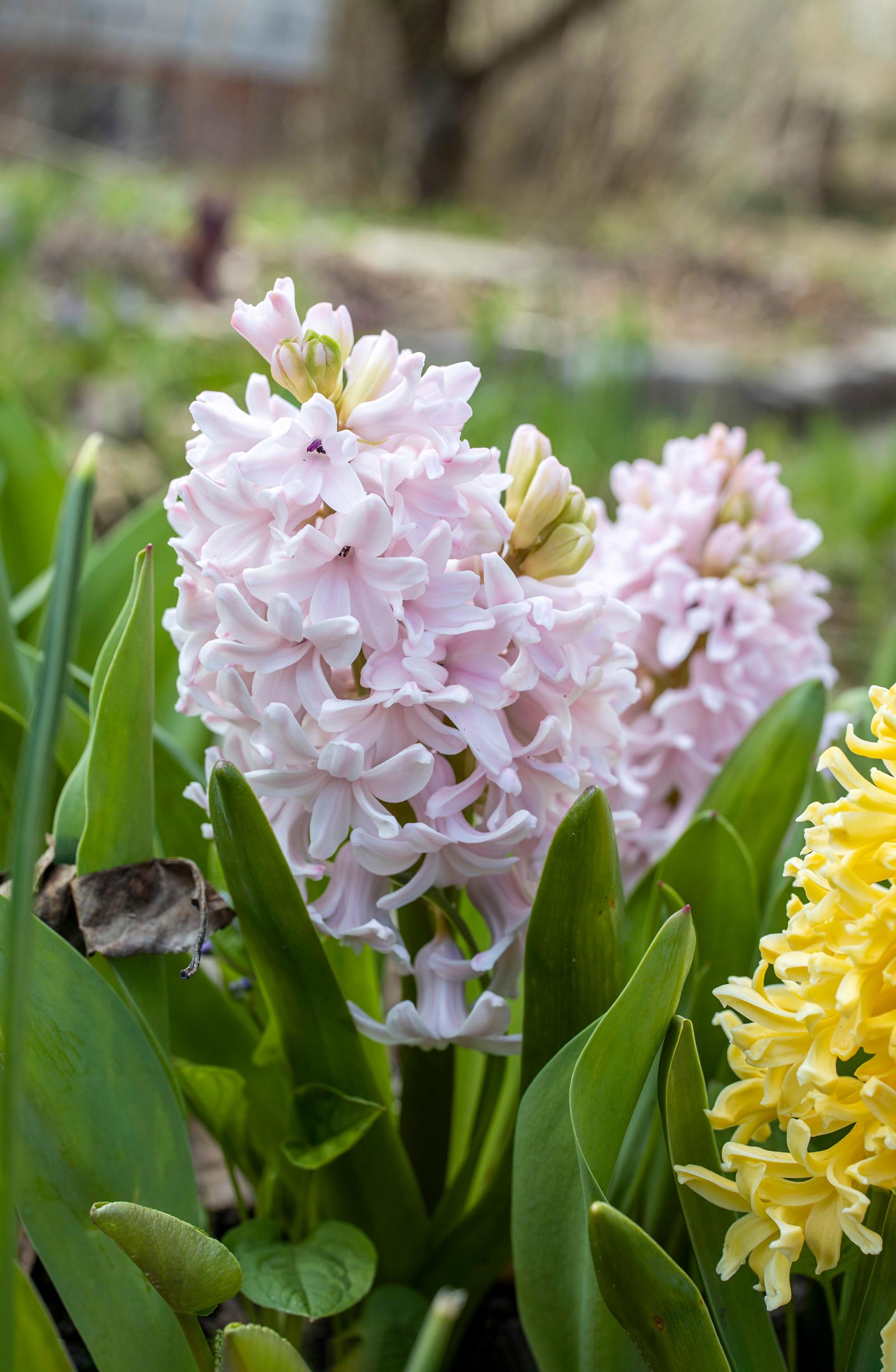

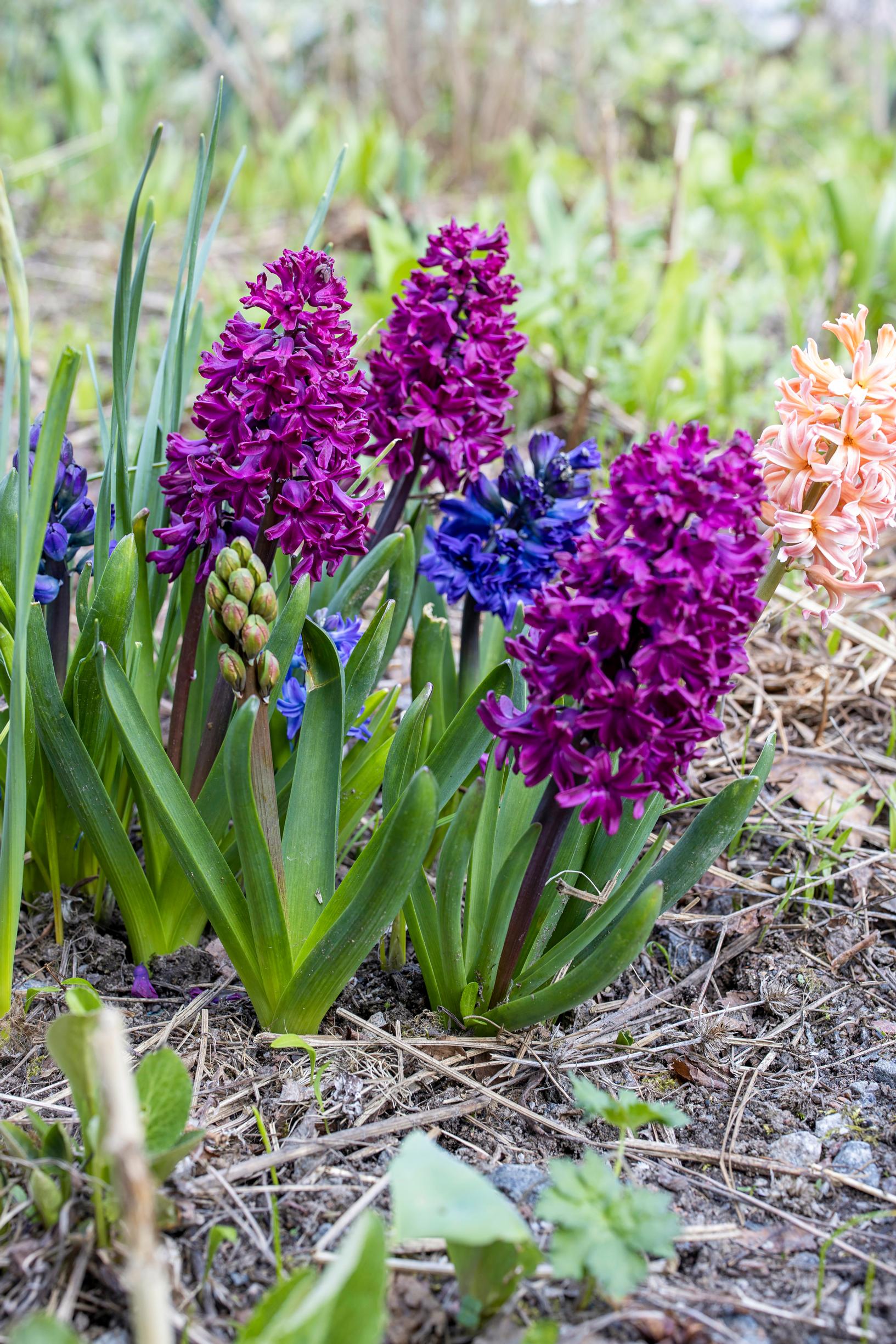
If you want lush blooms, fertilize your plants in spring and plant new bulbs in the garden each autumn.
In their first spring, the bulbs produce impressive and dense flower clusters. However, flowering declines quickly, so if you want lush blooms, fertilize your plants in spring and also plant new bulbs in the garden each autumn.
In an ideal growing location—and with a bit of luck—hyacinths can produce offsets and form a charming meadow-like cluster of delicate blooms. It’s worth trying several varieties, as they differ in hardiness and performance.

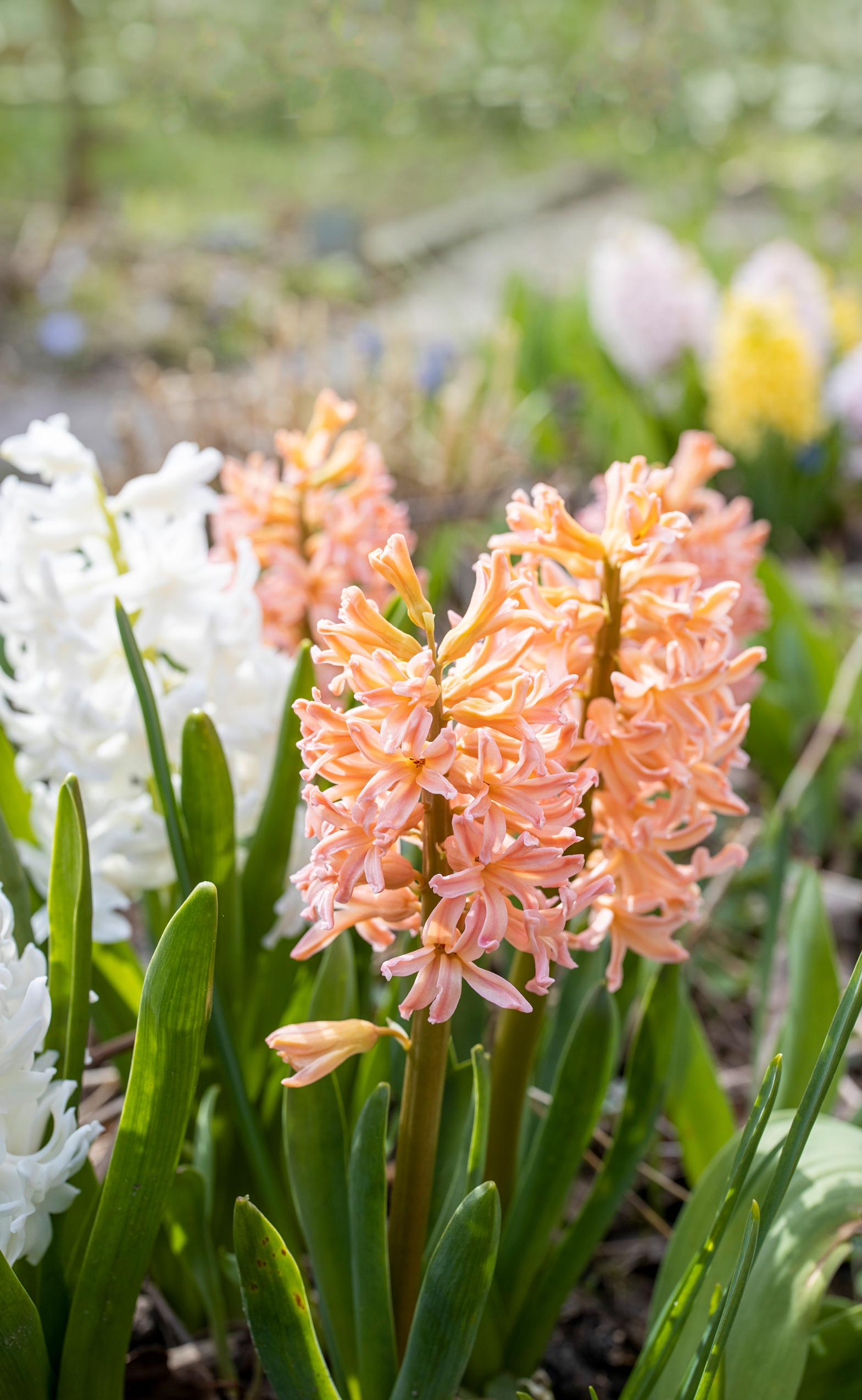
Double the joy

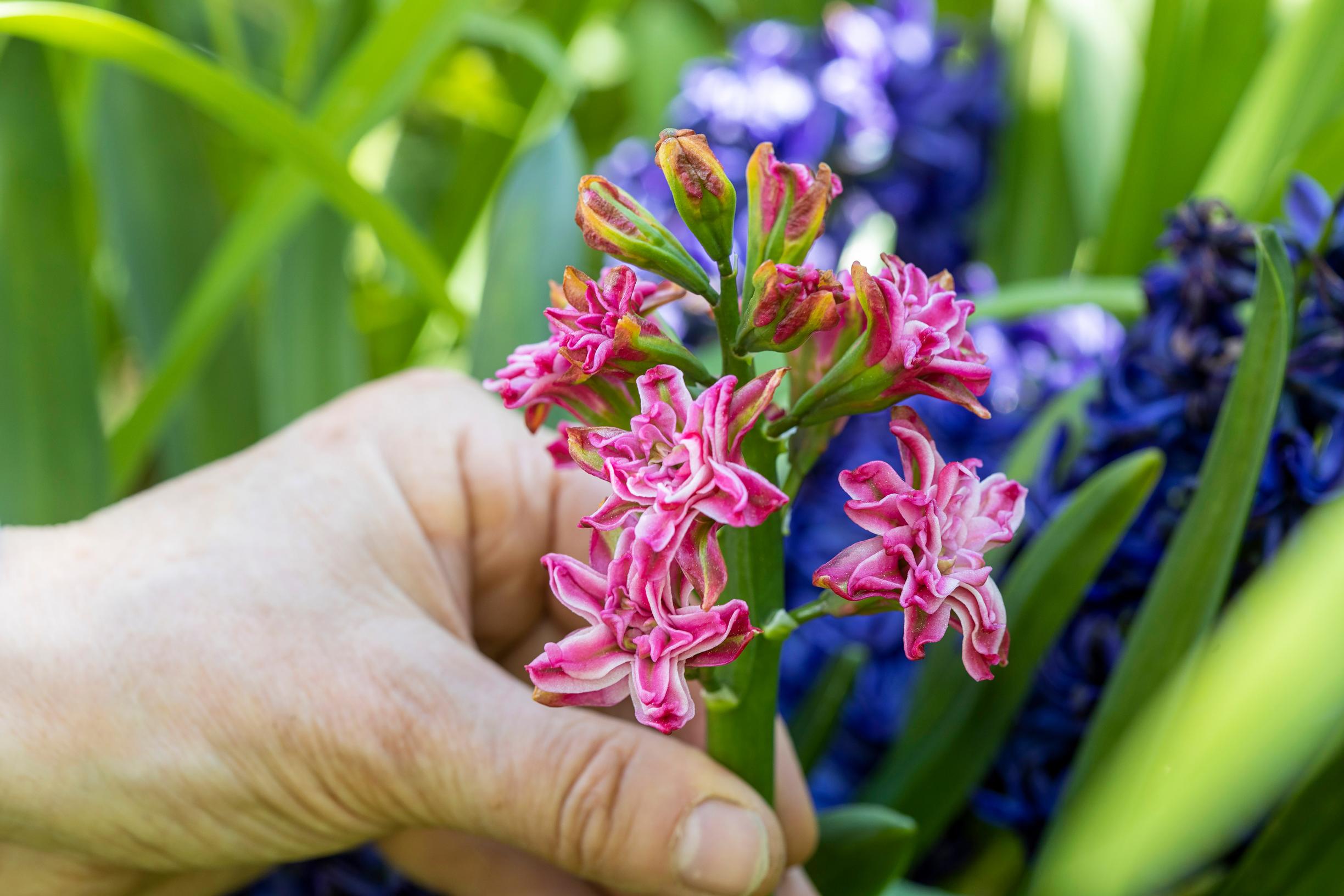
‘Eros Double’ is a peculiar variety with its two-tone, richly double flowers. The orange, brown, and pink-toned buds open slowly compared to other varieties. Hyacinths bloom for quite a long time in May, as nights and often days are still cool.
Cool clarity

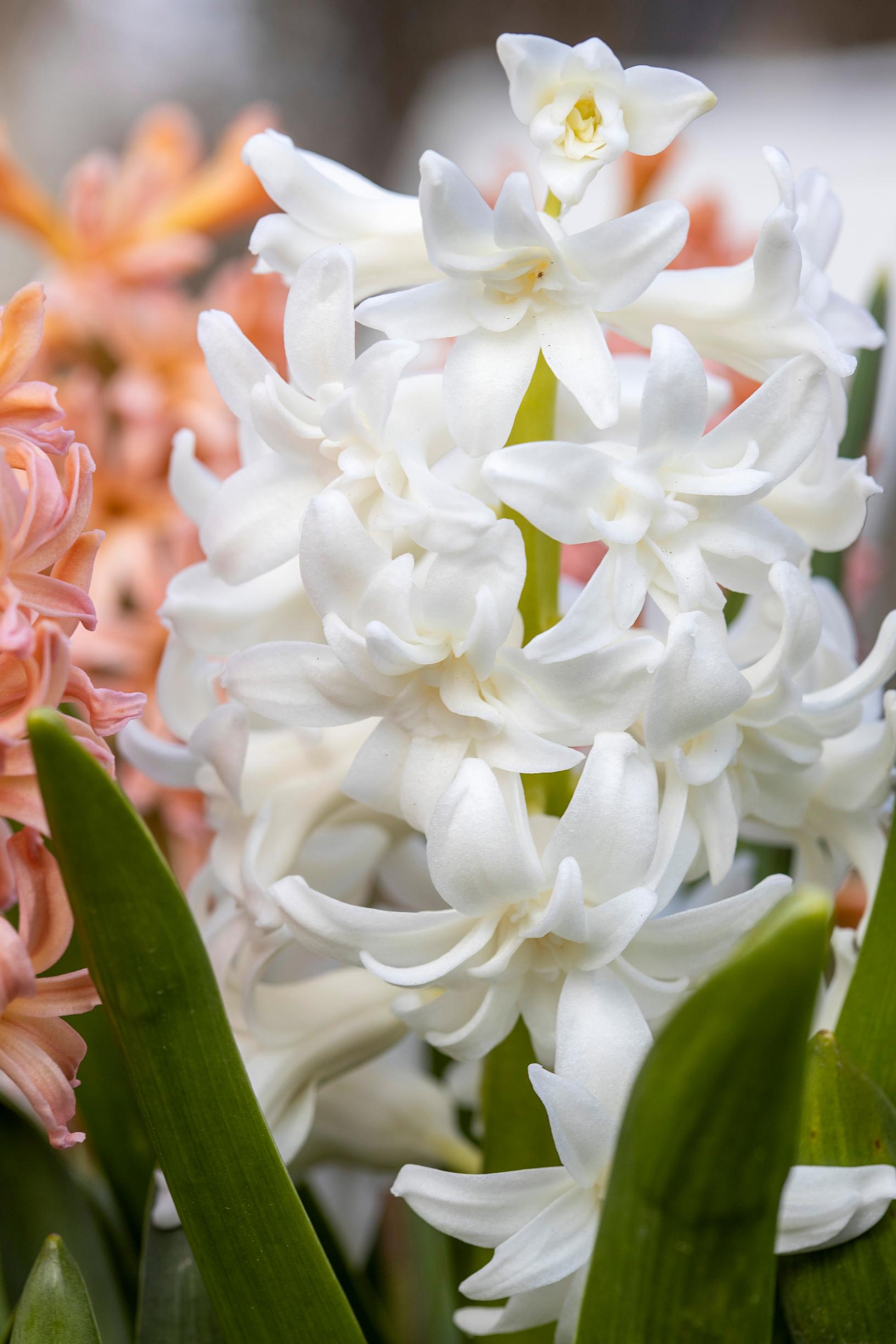
Hyacinths come in a diverse and delicious color range. In addition to yellow, red, and blue varieties, it’s worth planting white hyacinths in your garden, as they enhance and brighten other colors. The double flowers of the ‘Snow Crystal’ variety shine pure white in the spring sunshine.
If you buy lushly flowering potted hyacinths in spring, save these plants in their natural growth rhythm for garden planting.
Save for autumn
If you buy lushly flowering potted hyacinths in spring, save these plants in their natural growth rhythm for garden planting. Take care of fertilizing and watering during flowering to help the plant grow lush foliage and gather strength in the bulb for next year’s blooms. After the hyacinths have flowered, you can place them in their pots under a bush to wither and wait for planting in the ground in September. Over the years, the hyacinths’ flower clusters become more delicate and start to resemble the sparse-belled wild hyacinth.

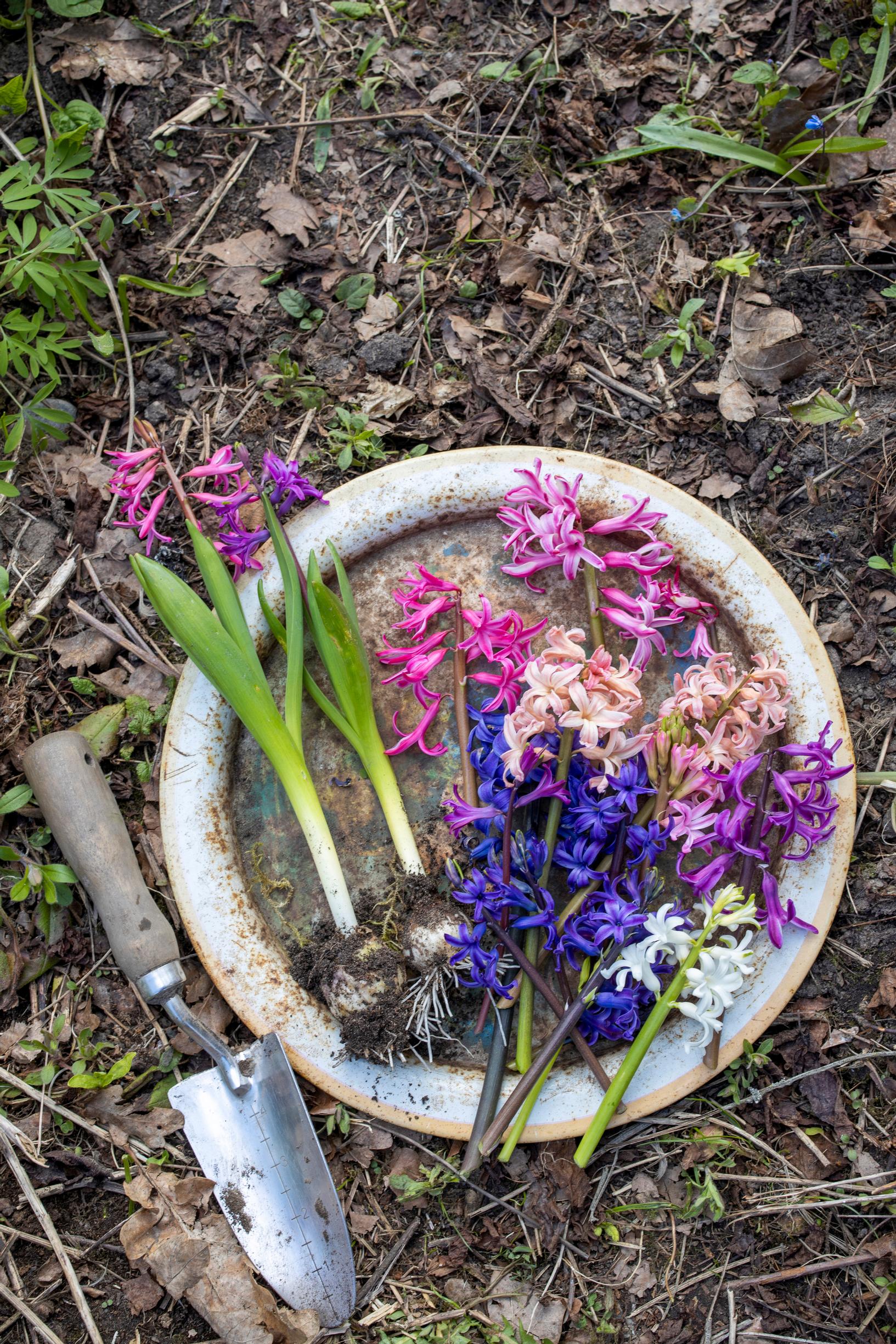
Cold-resistant trio

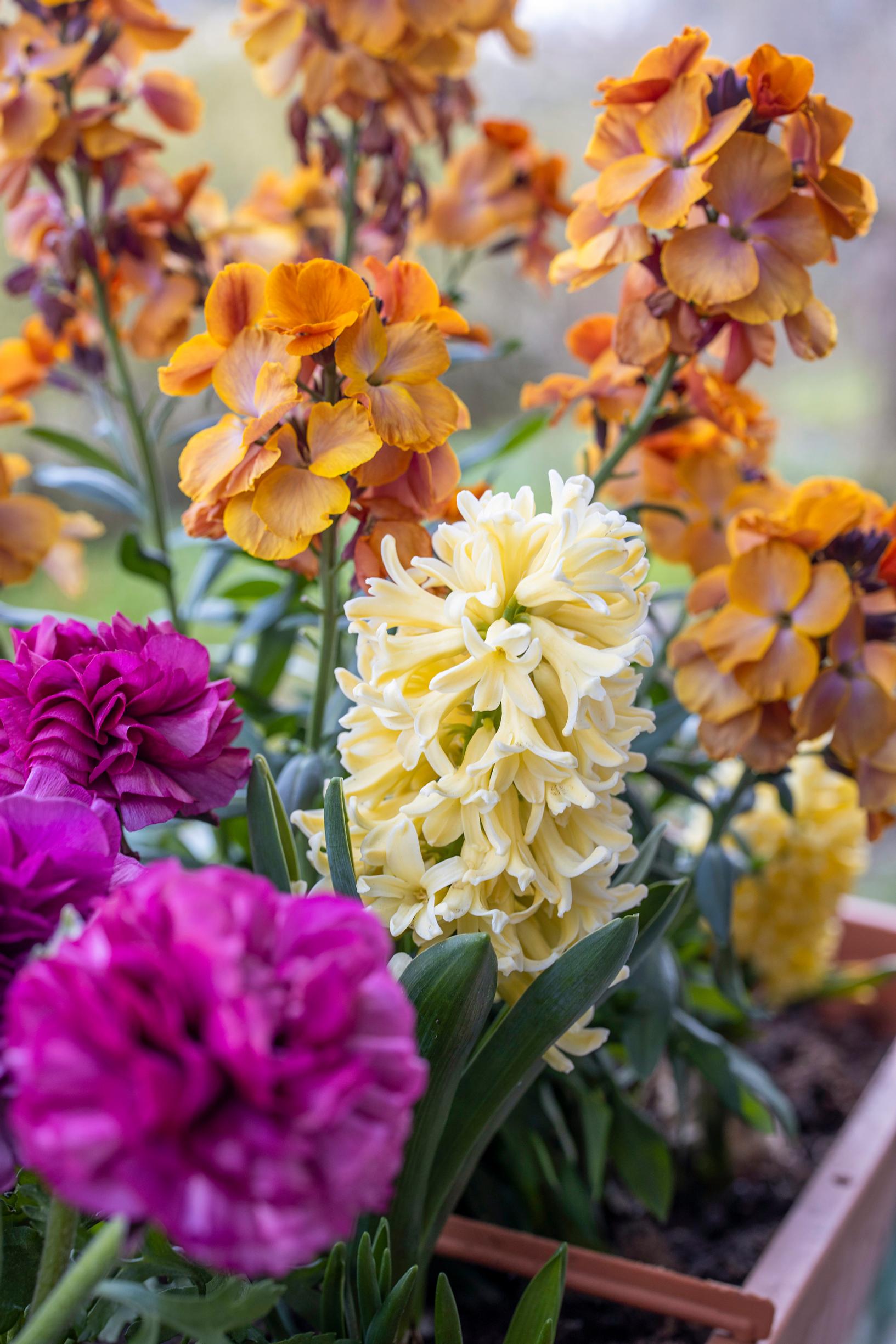
Hyacinth, Persian buttercup, and wallflower are all cold-resistant—perfect for spring planting. Adequate watering and gradually acclimating them to outdoor conditions helps plants adapt to capricious spring weather. A hyacinth purchased in bloom in spring can withstand temperatures of -2–5 degrees Celsius. If colder temperatures are expected or cool weather continues for a long time, it’s advisable to cover the plants with horticultural fleece.
Bring them indoors
Hyacinths are also lovely as cut flowers. It’s best to pick the blooms for vases when they’re still slightly in bud. The juicy stems of hyacinth release a slimy fluid that can hinder water uptake in other flowers. So if you want to combine hyacinths with other cut flowers, keep them in their own vase for a few hours first before placing them in the same vase with others. The water in the vase should be changed daily.

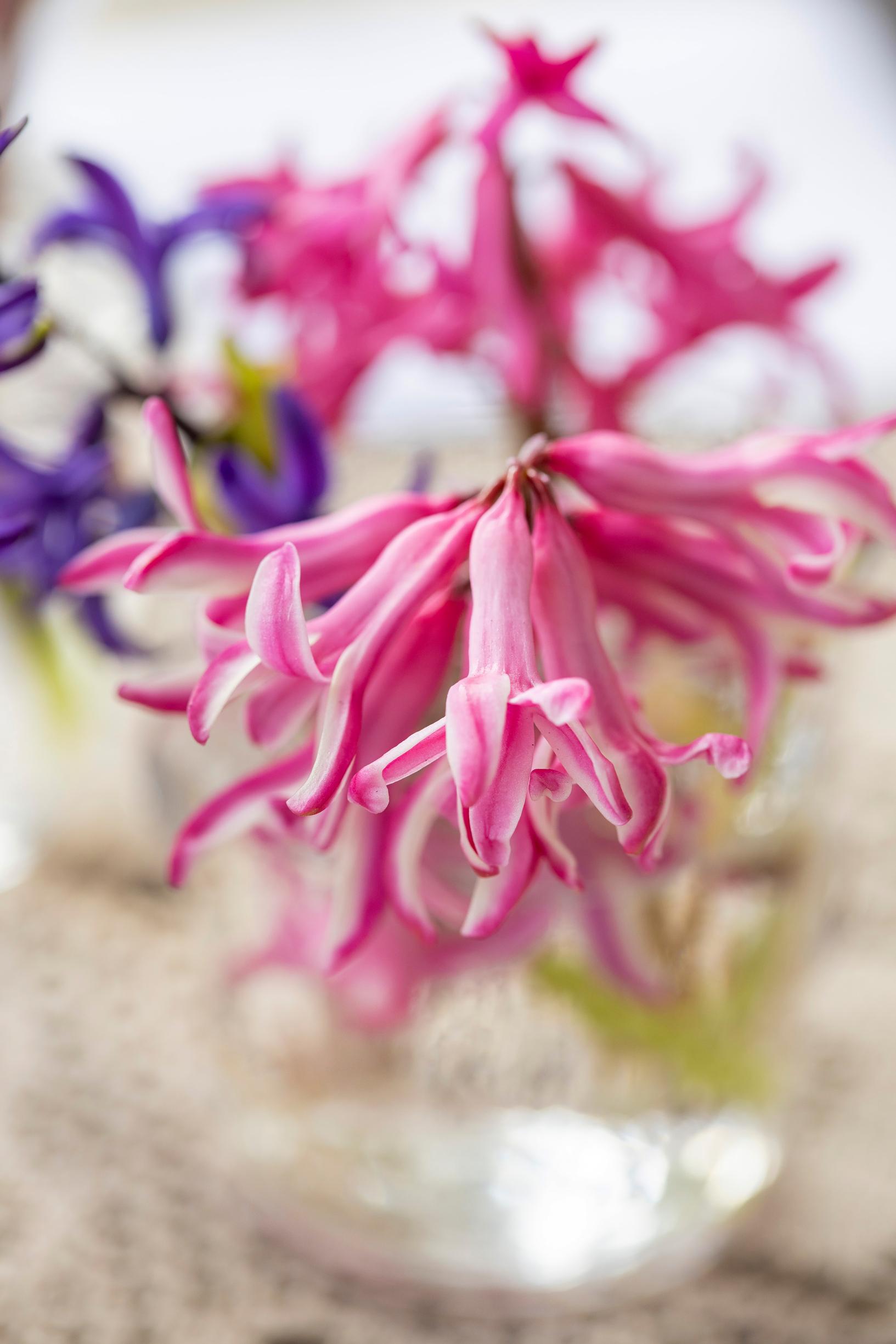
Deer-resistant beauty

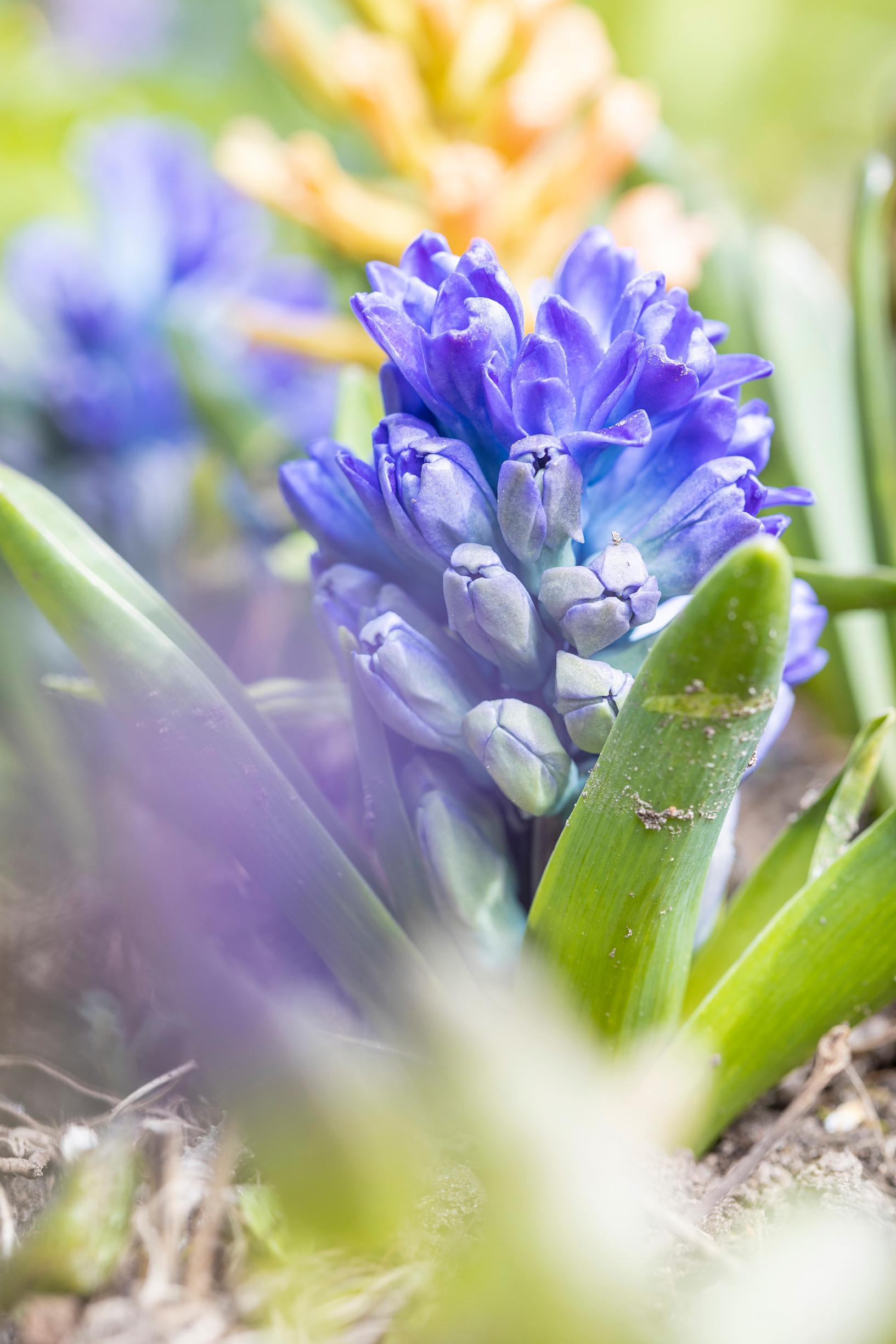
The charm of the ‘Blue Eyes’ variety is its gentle blue shade that stands out beautifully in the delicate spring light. Hyacinths get to open their buds in peace, as their leaves, flowers, and bulbs are spared by voles, deer, and rabbits.

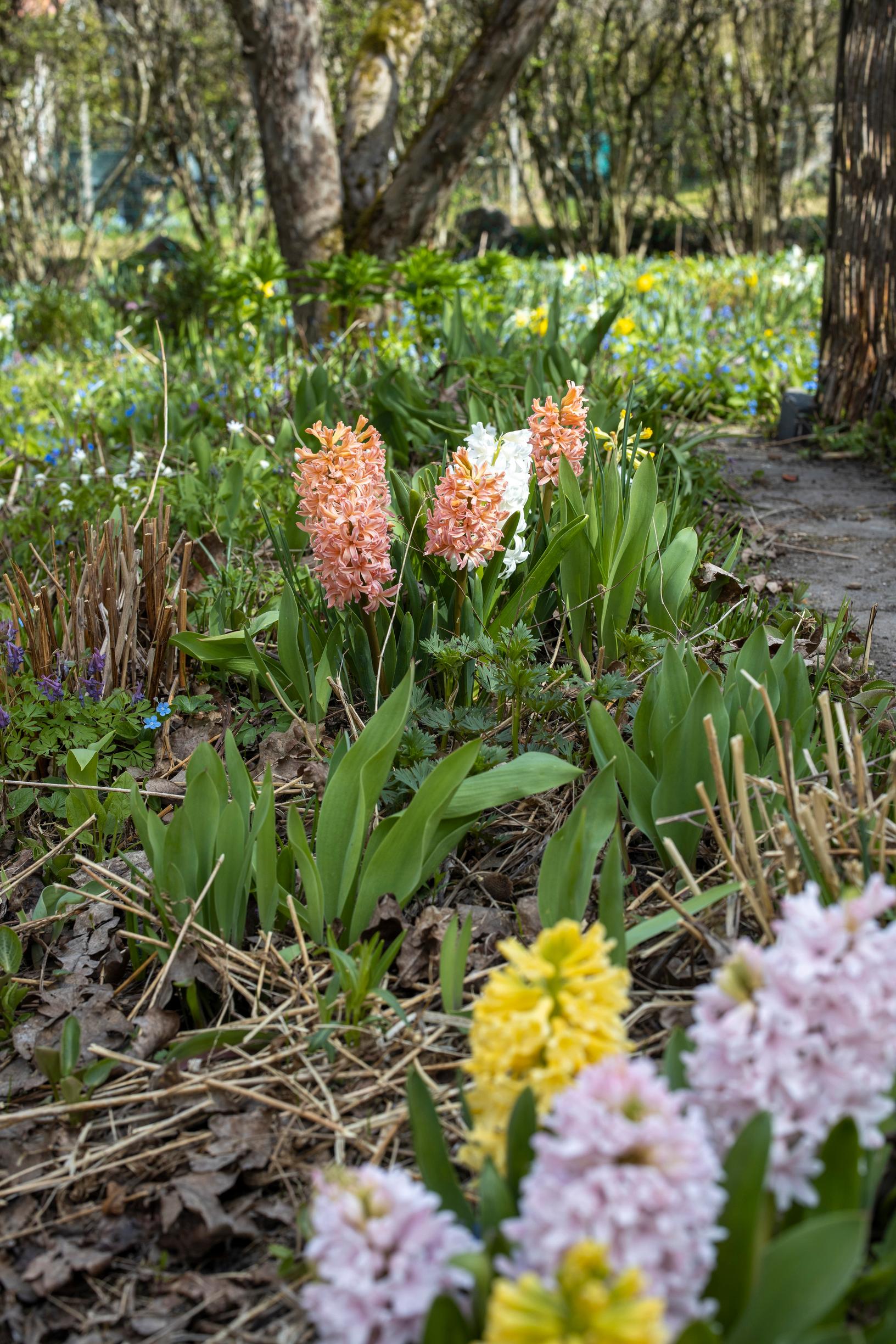

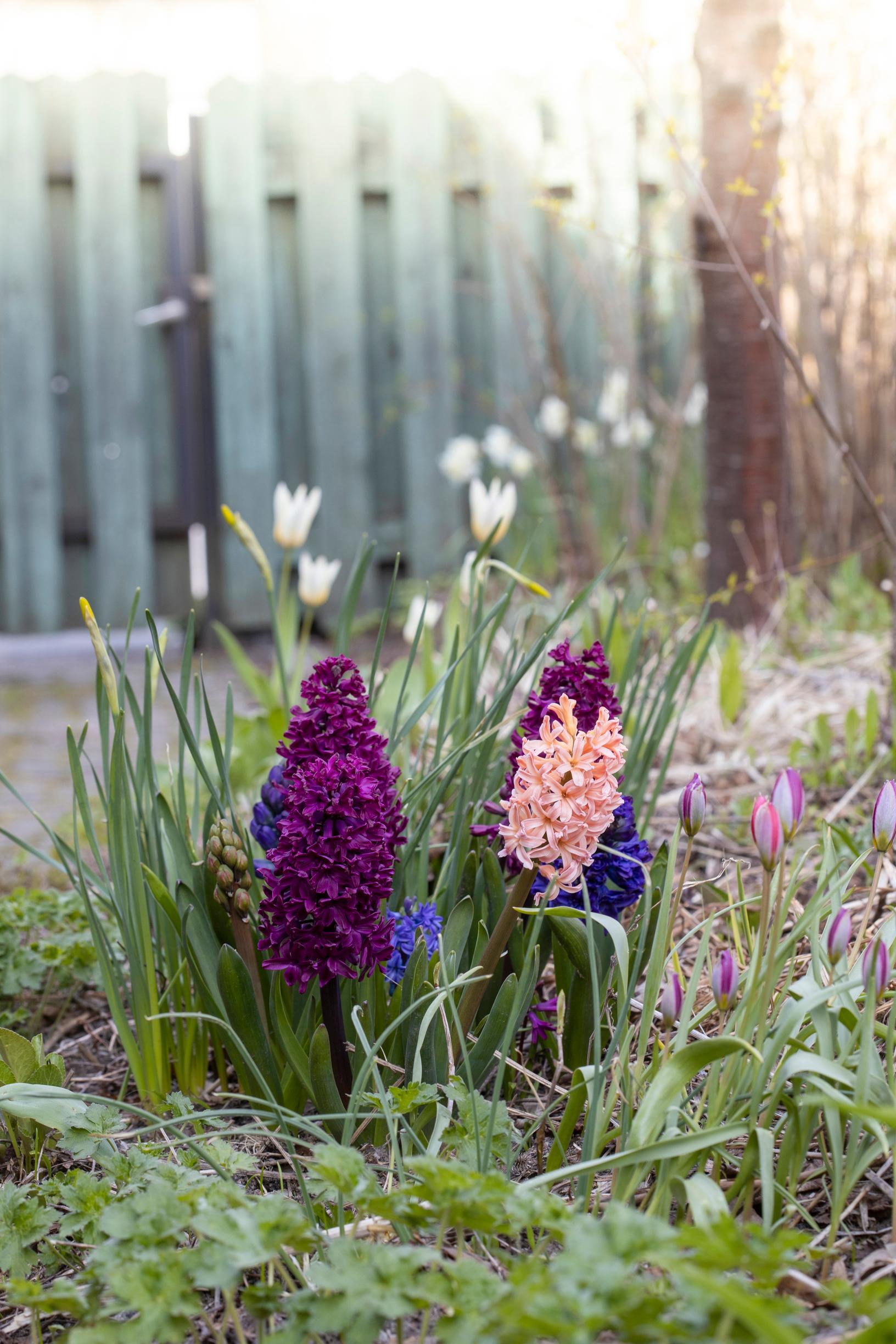
8 × hyacinth

